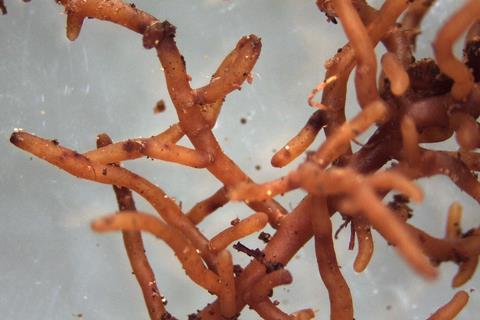The Society for the Protection of Underground Networks (SPUN), a scientific initiative dedicated to mapping and conserving mycorrhizal networks that underlie all terrestrial ecosystems, has received a $3 million general operating grant from the Schmidt Family Foundation.
“We can no longer overlook what’s underground: mycorrhizal networks have shaped life on Earth for more than 475 million years. They help sequester carbon, move nutrients, and protect ecosystem biodiversity,” said Toby Kiers, a professor of evolutionary biology at VU University Amsterdam and executive director of SPUN.
“But we need to act fast. The destruction of underground ecosystems accelerates climate change and biodiversity loss and interrupts vital global nutrient cycles. Mycorrhizal networks should be regarded as a global public good to be protected and restored.”

Kiers was recently named one of TIME Magazine’s 2022 TIME100 Next for her work decoding the complex trade patterns between plants and underground mycorrhizal networks.
SPUN plans to use the three-year grant to map the biodiversity of the Earth’s mycorrhizal networks through expeditions around the globe, and to expand their network of conservation and research partners. This is SPUN’s second grant, which adds the Schmidt Family Foundation to the organization’s founding funders. The organization will use machine-learning approaches to pinpoint underground biodiversity hotspots worldwide, with a focus on high-priority sites with the potential to store more carbon and survive extreme climate events.
One such site is the uninhabited Palmyra Atoll, the world’s most remote island. In November, the team will conduct an unprecedented month-long expedition to the atoll to explore the mysterious connection between birds, trees, underground fungi and underwater coral reefs.
“Without fungi, there would be no life on Earth. But climate change is putting fungal systems—and with them all our ecosystems, not to mention the foundations of all agriculture—at increasing risk,” said Wendy Schmidt, co-founder and president of the Schmidt Family Foundation.
“The dedicated scientists of SPUN recognize that to protect fungal networks, we need to bring them into a clearer focus and understand the crucial role they play in cleaning our air, creating our food and making life itself possible.”
The Food and Agriculture Organization of the United Nations estimates that more than 90% of the Earth’s soil will be degraded within the next 30 years, with logging, agriculture and extractive industry disrupting fungal networks. It can take up to 1,000 years to produce just 1 inch of soil.
SPUN has been working with local collaborators to map the diversity of mycorrhizal fungi all over the world, including recent expeditions in Colombia, Ecuador, and the Apennine Mountains in Italy–where forests and grasslands are experiencing some of the worst drought in 70 years.
“We need to work with communities to document underground biodiversity hotspots before they disappear,” said Kiers.
The Schmidt Family Foundation’s grant to SPUN is part of the organization’s longstanding commitment to restoring the Earth’s systems, protecting human rights and supporting scientists working on environmental stewardship.







No comments yet